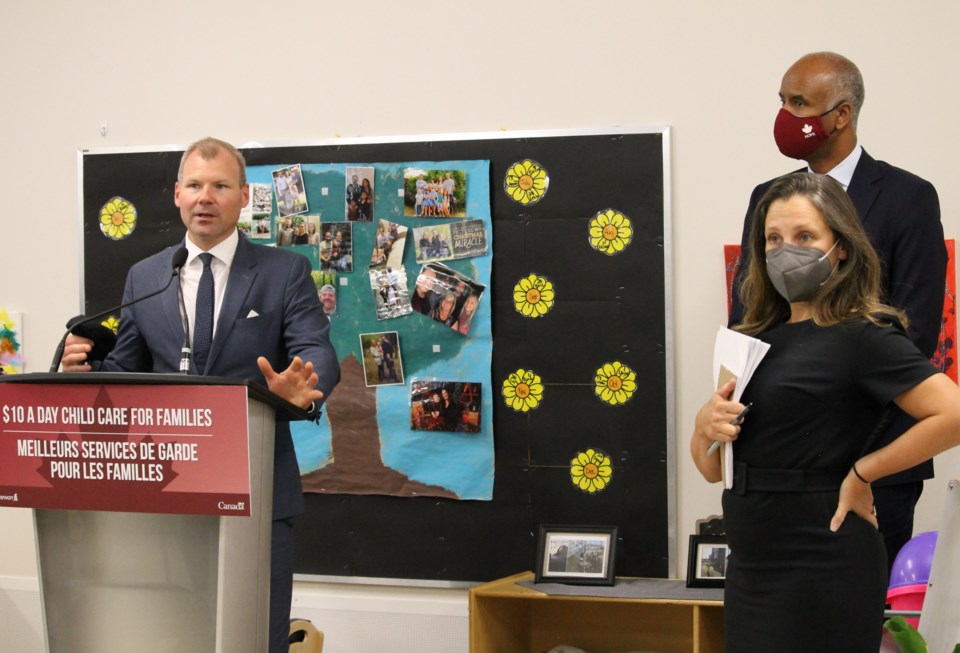REGINA — Provincial and federal officials announced today that Saskatchewan is the newest province to sign into the federal government’s in-progress plan to offer child care options at a cost of $10 a day to Canadian families.
The federal government will be providing Saskatchewan with a total of $1.1 billion over the next five years to implement the cost reduction measures by 2025.
Saskatchewan has said it’s actions are ahead of the federal schedule, and that families in the province will see an average 50 per cent reduction in child care fees by 2022.
The funding will also support the creation of 28,000 new regulated early learning and child care spaces in the province, for children under the age of six. These spaces will be in not-for-profit child care centres, small child care facilities and home-based child care options.
Deputy Prime Minister and Minister of Finance Chrystia Freeland joined federal Minister of Families, Children and Social Development Ahmed Hussen and Saskatchewan Minister of Education Dustin Duncan at Regina daycare Hope’s Home to officially finalize the agreement.
“I feel this is a breakthrough moment in Canada, where early learning and child care has ceased to be a partisan issue,” said Freeland. “People in Saskatchewan, people in Canada, are going to look back to today as a critical moment in building a universal early learning and child care system across the country.”
Funding from the agreement will also be used to support early childhood educators, with the creation of a wage grid to encourage fair pay and the addition of support to improve access to professional development.
Federal officials have also agreed to provide a one-time investment of $17 million, to increase operational funding for licensed child care providers that will include an increase in staff wages by up to $3 an hour.
Freeland said the plan is expected to provide a boost to the economy, as it will both allow parents more flexibility to work and increase the number of jobs available for early childhood educators.
Georgia Lavallee, executive director of the Saskatchewan Early Childhood Learning Association, echoed the statement.
“It really will empower women to enter the workforce, it will empower women in the early learning and child care workforce, and it will nurture better outcomes for all the children in Saskatchewan,” said Lavallee.
Saskatchewan is the eighth jurisdiction to join the federal agreement so far. Negotiations began in early July, said Duncan, and concluded quickly.
Freeland said that to date, the federal government has succeeded in providing $10 a day childcare access to 47 per cent of the country through their agreement plan.
“I am confident that we’re going to be able to do this for the remaining provinces and territories,” said Freeland.
She also said she is confident that the looming election will not put these funding commitments in danger of being rolled back.
The province has also finalized discussions to extend the Saskatchewan-Canada Early Learning and Childcare Agreement for another four years, to continue increasing accessibility to quality care services. The federal government will provide more than $68.5 million over the next four years through this agreement.




